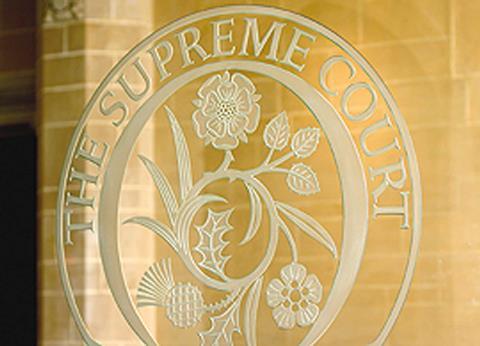‘Deeper pockets’ is not sufficient justification for extending vicarious liability ‘beyond its principled boundaries’ the Supreme Court has found, ruling that a congregation cannot be liable for a rape committed by one of its elders.
The judgment in Trustees of the Barry Congregation of Jehovah’s Witnesses v BXB, handed down last week, involved the rape of a married woman by Mark Sewell, an elder of the Jehovah’s Witnesses in the 1990s. In 2014, Sewell was convicted of raping the woman, referred to as Mrs B, and a further seven counts of indecently assaulting two others. He was sentenced to 14 years’ imprisonment.
Mrs B sued the Watch Tower and Bible Tract Society of Pennsylvania, a not-for-profit organisation that supports the worldwide religious activities of the Jehovah’s Witnesses as well as the Trustees of the Barry Congregation for damages for personal injury including psychiatric harm.

She alleged they were vicariously liable for the rape and were negligent in their failure to ‘adequately…investigate and conduct a proper inquiry’ into the allegation.
Mrs B was awarded general damages of £62,000. The Trustees of the Barry Congregation appealed against the decision on vicarious liability, which was dismissed.
Giving leading judgment, Lord Burrows said the correct test which should have been applied in the lower courts was ‘whether the wrongful conduct, the rape, was so closely connected with acts that the tortfeasor, Mark Sewell, was authorised to do, that the rape can fairly and properly be regarded as committed by him while acting in the course of his quasi-employment as an elder’.
Burrows said the test was not satisfied as the rape was not committed while Sewell was carrying out activities as an elder on behalf of the Jehovah’s Witnesses; he was not ‘exercising control’ over B because of his position as an elder, and Sewell was ‘not wearing his metaphorical uniform as an elder at the time the tort was committed’.
He accepted Sewell’s role as an elder was a ‘but for’ cause of Mrs B’s ‘continued friendship’ but that it was ‘insufficient to satisfy the close connection test’.
Allowing the appeal, Burrows, who sat with Lord Reed, Lord Hodge, Lord Briggs, and Lord Stephens, added: ‘As a final check, if I stand back and consider the policy of enterprise liability or risk that may be said to underpin vicarious liability, that consideration of policy confirms that there is no convincing justification for the Jehovah’s Witness organisation to bear the cost or risk of the rape committed by Mark Sewell.
‘Clearly the Jehovah’s Witness organisation has deeper pockets than Mark Sewell. But that is not a justification for extending vicarious liability beyond its principled boundaries.’
Lord Faulks KC, Catherine Foster, and Shane Brady, instructed by Watch Tower Legal Department, appeared for the Trustees of the Barry Congregation of Jehovah’s Witnesses; James Counsell KC and Benjamin Bradley, instructed by Bolt Burdon Kemp LLP, for BXB.


























